Posted on 9/27/2025
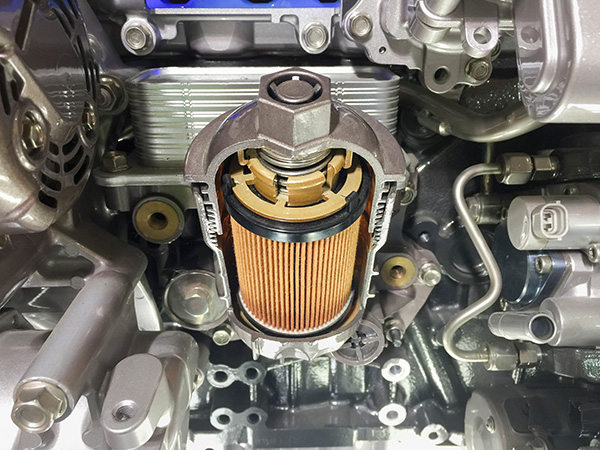
Your vehicle’s fuel system works hard every time you start the engine, and one small but vital component keeps it running smoothly: the fuel filter. Its job is simple but critical. It traps dirt, rust, and other contaminants before they reach the engine. Over time, the filter becomes clogged, which can affect fuel delivery, reduce efficiency, and even damage expensive components. Knowing when to replace your fuel filter helps keep your engine performing at its best and avoids unexpected breakdowns. The Role of the Fuel Filter Every time you fill your gas tank, there’s a chance small amounts of dirt, debris, or impurities enter the system. Without a filter, those contaminants would reach the injectors and combustion chambers, where they can create buildup, reduce performance, and shorten engine life. The fuel filter acts as a protective barrier, keeping fuel clean so the engine runs efficiently and reliably. A clogged or damaged filter can’t do its ... read more
Posted on 8/29/2025

Driving from one side of the country to the other is more than just a long trip—it’s a true test of your vehicle, your patience, and your preparation. As a repair shop owner, I decided to take the opportunity to drive cross-country between Nevada and North Carolina not just for the adventure, but also to observe how vehicles behave over long distances and in different conditions. Here are some valuable insights and lessons from the journey, aimed at helping you get more out of your vehicle on long road trips and beyond. Pre-Trip Inspections Are Worth Every Minute Before hitting the road, I give my vehicle a full inspection. That included checking fluids, belts, hoses, tires, brakes, and filters. What I realized early on is that many road breakdowns can be avoided with simple preparation. Drivers often assume their car is fine if nothing feels wrong, but long-distance driving places a different kind of stress on your systems. For example, a tire that&rsq ... read more
Posted on 7/25/2025
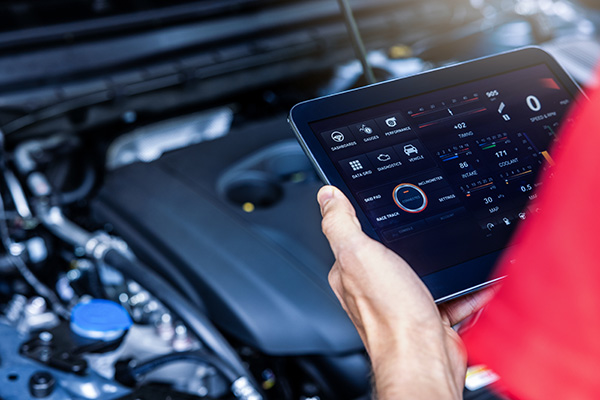
Modern vehicles are more advanced than ever, packed with sophisticated technology that makes them safer, more efficient, and more reliable. Along with these advancements comes a greater reliance on computer systems to monitor and manage your car’s various functions. When something goes wrong, computer diagnostics play a key role in identifying mechanical problems quickly and accurately. Understanding how this process works can help you appreciate the value of these tools and why professional inspections are so important. What Are Computer Diagnostics Computer diagnostics involve using specialized scanning tools to communicate with your car’s onboard computer systems. These systems, often referred to as the engine control module (ECM) or powertrain control module (PCM), constantly monitor data from sensors throughout your vehicle. When the system detects something outside of normal parameters, it stores a trouble code and often triggers a dashboard warnin ... read more
Posted on 6/27/2025
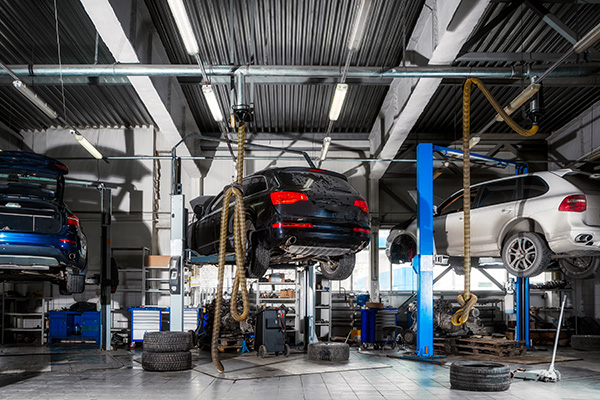
Every vehicle owner wants their car to last as long as possible and perform at its best. One of the most effective ways to achieve this is by following a mileage-based maintenance schedule, particularly the 30,000-, 60,000-, and 90,000-mile service intervals. These services are designed to check and refresh your car’s most critical systems at key points in its lifespan. You might be wondering if these services are really necessary, especially if your car seems to be running fine. The truth is that skipping these scheduled maintenance intervals can lead to premature wear, reduced fuel efficiency, and costly breakdowns that could have been prevented with routine care. What Happens During a 30,000-Mile Service At 30,000 miles, your car is still relatively new, but it has already gone through significant use. This first major service focuses on replacing filters, inspecting fluids, and checking for early wear. Technicians typically change the engine air filter an ... read more
Posted on 5/30/2025
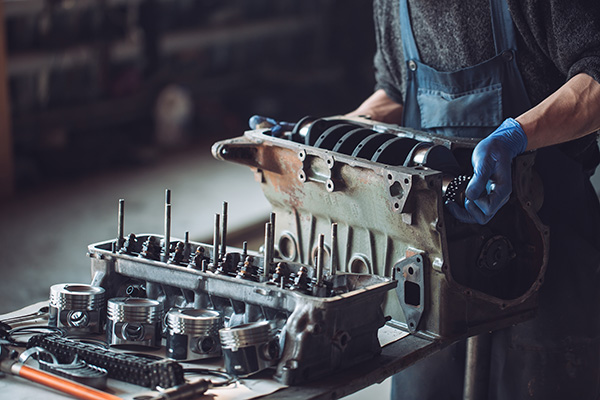
Your engine generates a lot of heat—and it’s the cooling system’s job to keep that heat under control. When everything’s working properly, coolant flows through the engine, absorbs excess heat, and cycles it away through the radiator. But when something fails in that system, temperatures rise fast—and the consequences can be serious. Ignoring cooling system problems doesn’t just put your radiator at risk. It can lead to major engine damage that’s expensive to repair. Here are six engine problems that often result from overheating caused by cooling system failure. 1. Blown Head Gasket When your engine overheats, one of the first components at risk is the head gasket. This crucial seal sits between the engine block and cylinder head and keeps oil, coolant, and combustion pressure separate. If temperatures spike, the metal surfaces can expand unevenly, compromising the seal. Once the head gasket fails, coolant can leak into th ... read more
Posted on 4/25/2025
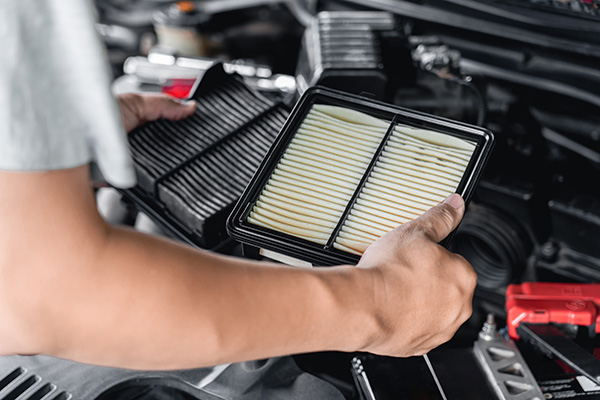
Your car feels a little sluggish lately. It still starts fine, and there are no warning lights on the dash, but when you press the gas pedal, there’s a delay—or just not as much power as you’re used to. Could something as simple as a dirty air filter be the cause? Absolutely. A clogged air filter can make your car feel slower, less responsive, and even burn more fuel than necessary. While air filters aren’t as flashy as performance parts or tuning upgrades, they’re one of the most important components for maintaining engine health and drivability. Let’s take a closer look at how a dirty air filter impacts acceleration, what signs to watch for, and when it’s time to replace it. Clean Air Matters for Performance Your engine needs three things to run properly: fuel, spark, and air. The air filter’s job is to protect the engine from dust, dirt, and debris while allowing enough clean air to flow into the combustion chamber ... read more
Posted on 3/28/2025
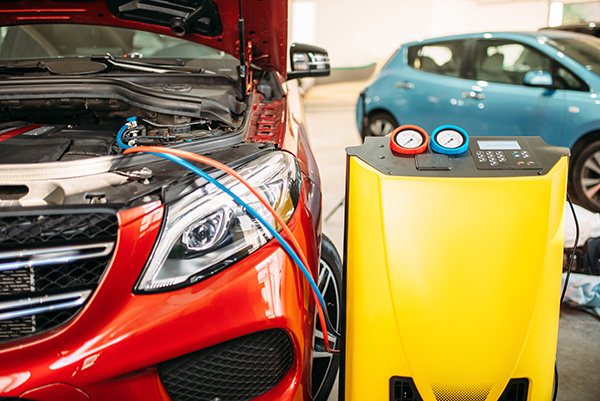
When temperatures rise, a properly functioning air conditioning system is essential for a comfortable drive. But if your AC isn’t cooling as well as it used to, it can make even short trips unbearable. Many factors can affect how cold your AC blows, from low refrigerant levels to airflow restrictions or worn-out components. While some issues require professional repairs, there are several ways to improve your car’s cooling performance and make sure you get the most out of your AC system. Common Reasons Your Car’s AC Isn’t Cold EnoughLow Refrigerant Levels Refrigerant, commonly known as Freon, is the key to producing cold air. Over time, AC systems can develop small leaks, causing refrigerant levels to drop. Without enough refrigerant, your AC will struggle to cool properly. Signs of low refrigerant include: Weak airflow that doesn’t get very cold AC blowing warm air, even when set to max Hissing sounds coming from t ... read more
Posted on 2/28/2025
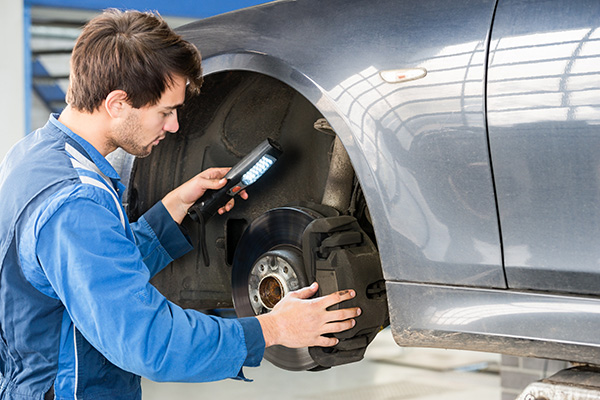
Your brakes are one of the most critical safety components of your vehicle. Whether you're cruising down the highway or navigating city traffic, you rely on them every single time you drive. But how often should you have them inspected? The answer depends on your driving habits, road conditions, and how your car responds when stopping. Ignoring brake issues can lead to longer stopping distances, uneven braking, or even complete brake failure. To avoid these risks, it’s essential to know when to schedule a brake inspection and what signs indicate a problem. General Guidelines for Brake Inspections Most experts recommend having your brakes inspected at least once a year or every 10,000 miles, whichever comes first. However, if you do a lot of city driving with frequent stops or if you drive in hilly areas, you may need to have them checked more often. A good rule of thumb is to include a brake inspection with every tire rotation or oil change. Since your br ... read more
Posted on 1/31/2025

Driving demands your full attention. Whether it’s the chatter of other vehicles on the road, a distant siren, or the simple hum of your engine, being aware of your surroundings is key to staying safe behind the wheel. But what happens when you slip on a pair of headphones and tune into your favorite playlist or podcast? While it might seem like a harmless way to pass the time, wearing headphones while driving can significantly impact your awareness and put you and others at risk. The Role of Sound in Safe Driving Hearing is one of your most valuable senses when you’re on the road. Unlike visual cues, which are often limited to what’s directly in front of you, sound provides critical 360-degree situational awareness. Think about it: a blaring horn, the screech of tires, or the approach of an emergency vehicle are all auditory signals that prompt you to react. When you wear headphones, you effectively mute the world around you. This lack of auditory ... read more
Posted on 12/20/2024
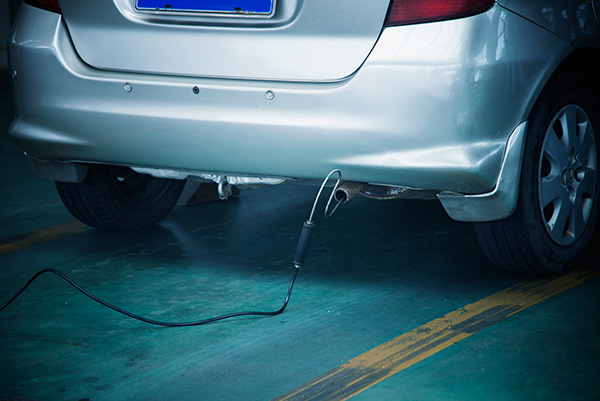
Your vehicle’s exhaust system does more than just reduce noise. It is vital to your car’s performance, efficiency, and environmental impact. When problems arise in this critical system, they can have serious consequences—not just for your car but for your safety and wallet. Wondering how exhaust issues can harm your vehicle and what to do about them? What Does the Exhaust System Do At its core, the exhaust system channels harmful gases away from your engine, reduces emissions, and minimizes noise. It ensures your car runs efficiently while keeping toxic fumes out of the cabin. A healthy exhaust system contributes to better fuel economy and a quieter, more pleasant driving experience. But when something goes wrong, those benefits quickly disappear. Signs of an Exhaust Problem You Shouldn’t Ignore Exhaust issues rarely go unnoticed for long, but they often start with subtle symptoms. Have you noticed a louder-than-normal engin ... read more